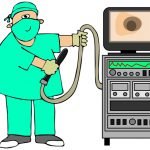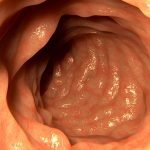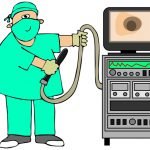A recent study has found that acupuncture beats the pants off of drug therapy in reducing hot flashes. The study followed 47 women who were experiencing at least 14 hot flashes each week. All the subjects were breast cancer patients receiving hormone therapy, which induces menopausal symptoms including hot flashes. Half the women received the traditional treatment for hot flashes — taking the antidepressant Effexor. The other half of the subjects received acupuncture.
Turns out that the acupuncture not only reduced hot flashes as effectively as the drug did, but the effects lasted seven times longer. After 12 weeks of treatment, the drug reduced symptoms for another two weeks, but the acupuncture benefits lasted a full 15 weeks after treatment ended!
And then there’s the side effect issue. Effexor can cause nausea, headache, blurred vision, insomnia, impotence, decreased sex drive, high cholesterol, suicidal ideation, hallucinations, cataracts, seizures, anemia, hair loss, dizziness, hypertension, fatigue, hemorrhoids, anxiety, and many ugly other things — not exactly what a cancer patient needs. Acupuncture, on the other hand, has no side effects — except good ones. The women in this study reported that acupuncture gave them increased energy, heightened sexual drive, and an overall sense of well-being.
So much for the march of progress in modern medicine. Nasty side-effects from the drug, versus feeling great with longer-lasting benefits from acupuncture — which treatment would you opt for?
Lead researcher Dr. Eleanor Walker of Henry Ford Hospital in Detroit, said, “[Acupuncture has] been tested directly against a drug that we use regularly. And it’s more effective. It has benefits, as opposed to any side-effects.”
The irony is that acupuncture predates antidepressant meds by thousands of years. Back in 305 B.C., the first book on Chinese Medicine, The Nei Jing, came out. One part of the text focuses entirely on acupuncture, which had been around a good thousand or so years before that. By the time of publication, China had fireworks, chess, and pasta — as well as a sophisticated and effective approach to healing that many modern Westerners just can’t seem to believe actually works. As opposed to Western medicine, the Chinese approach considers the flow of energy in the body and takes a holistic approach, rather than targeting one symptom or organ at a time, in isolation.
In summing up the findings, Dr. Walker noted, “If you only have to give women treatment three to four times a year as opposed to having to take a pill every day, that’s going to be more cost-effective for insurance companies and the patient.” As if that information will make a difference in what doctors prescribe! Unfortunately, the makers of acupuncture needles don’t send doctors on golf junkets to Hawaii for a week. Effexor wins that round!
But there is hope: bowing to consumer demand, increasing numbers of insurance policies now cover acupuncture, at least in part. In fact, a recent survey of 18 major health-insurers such as Aetna Prudential, and Kaiser Permanente found that 14 of them covered some form of complementary therapy.
:hc











